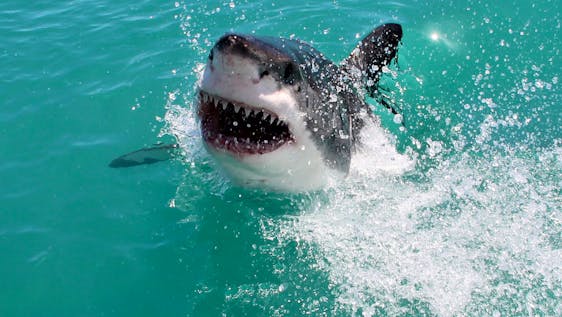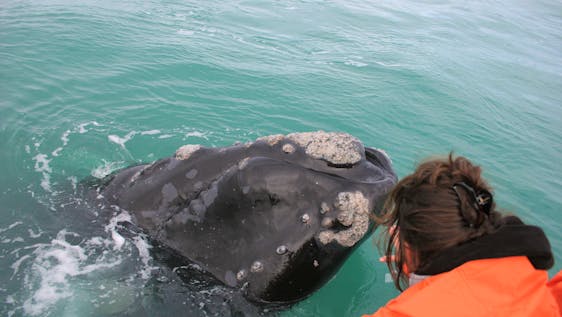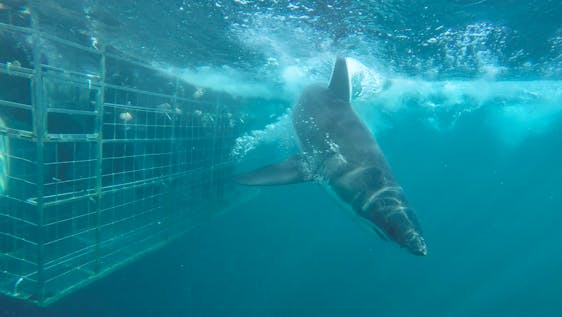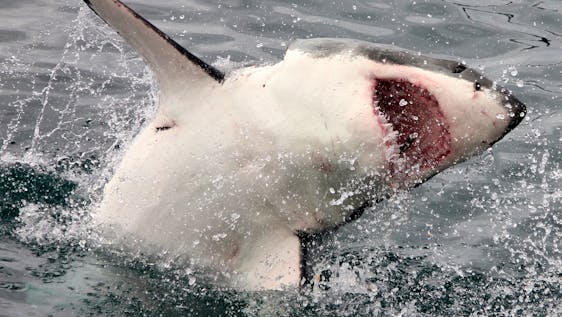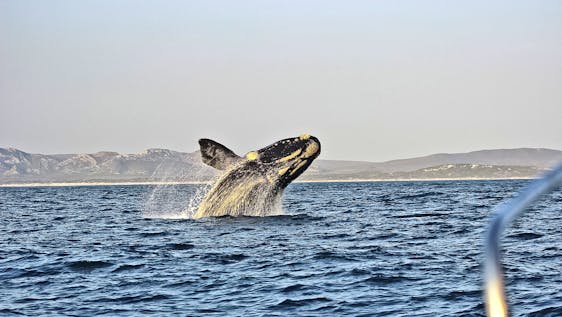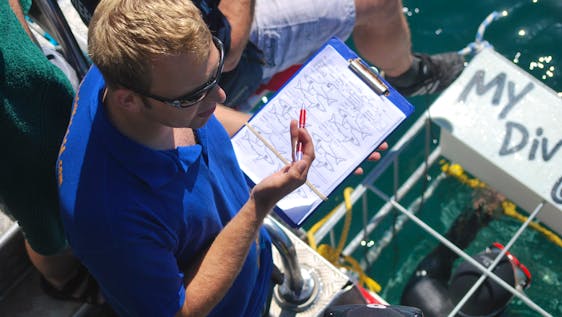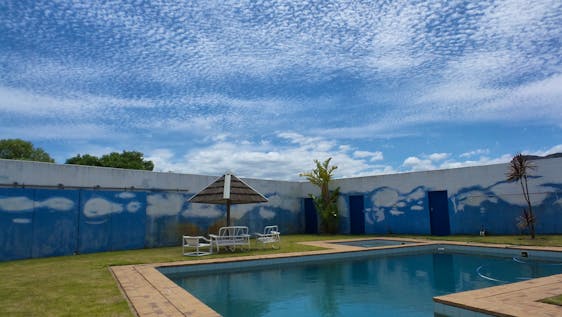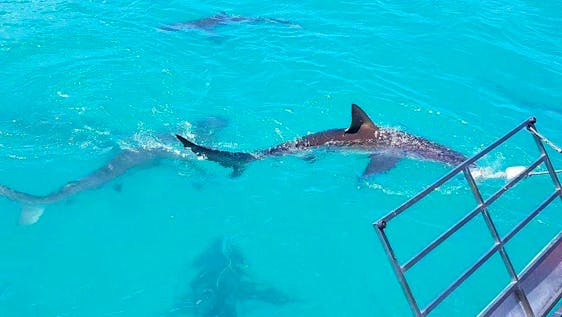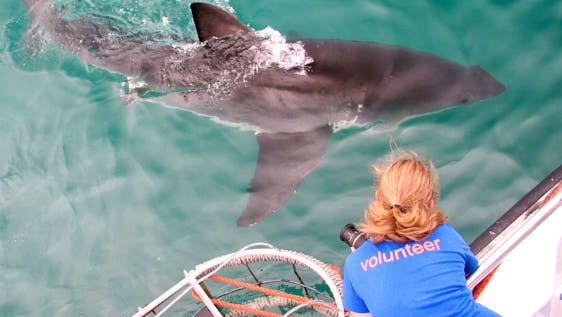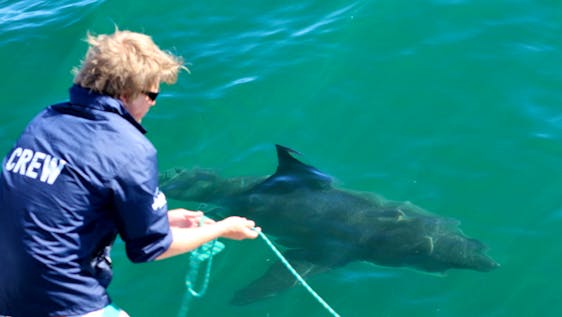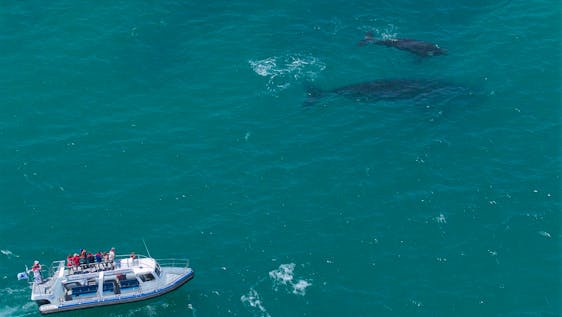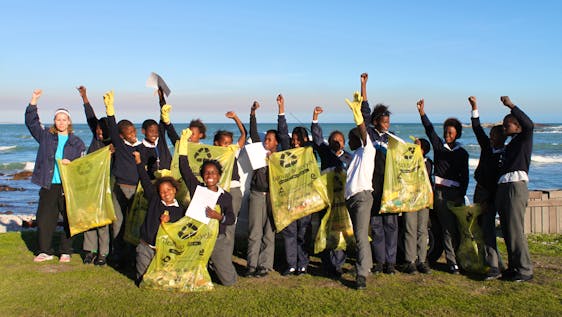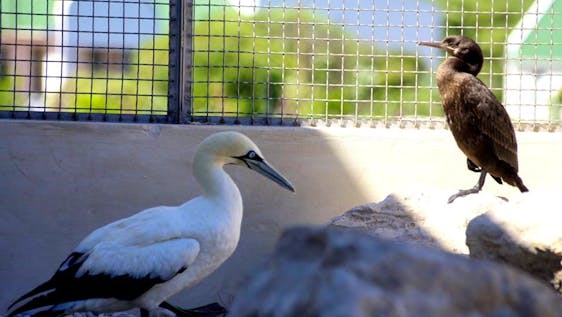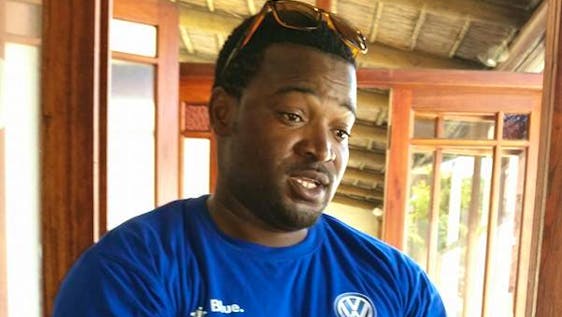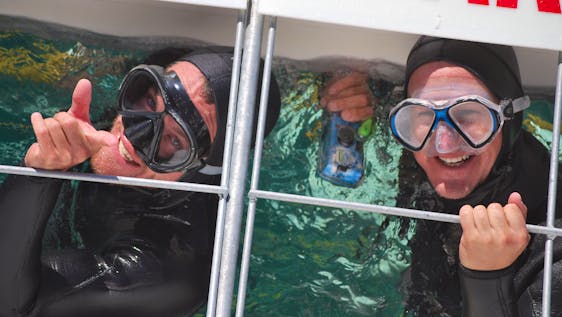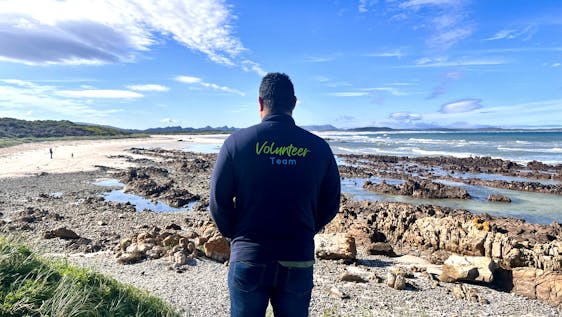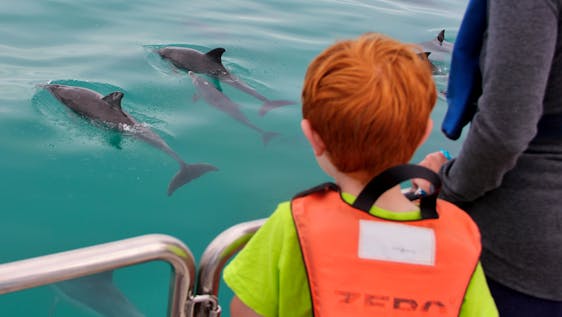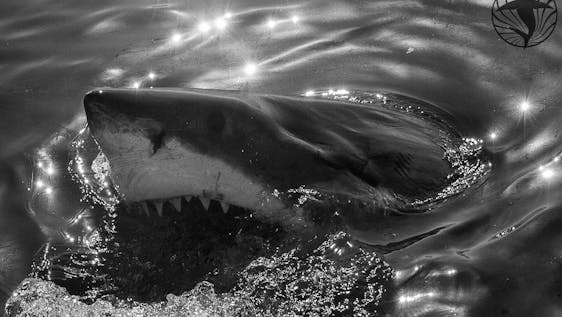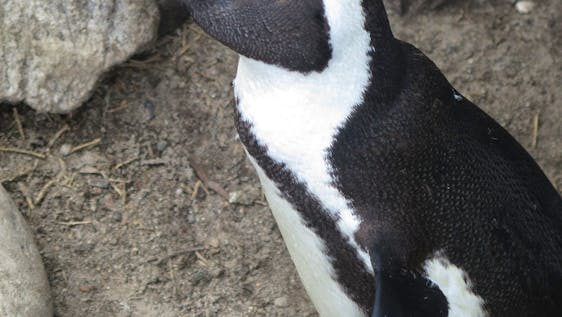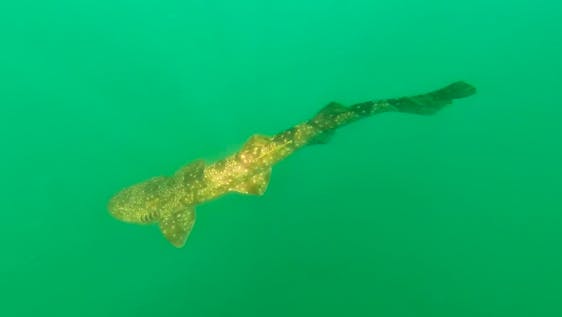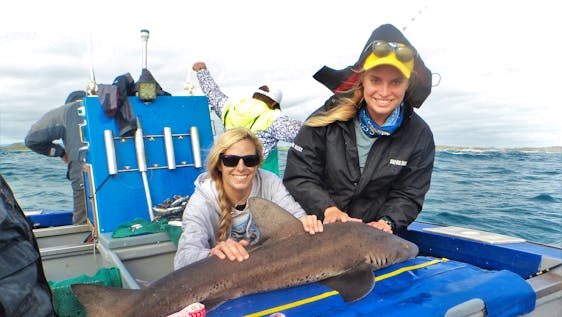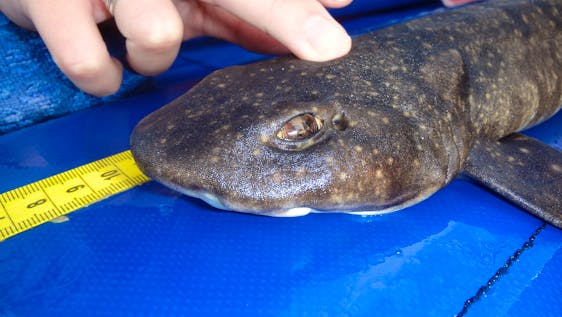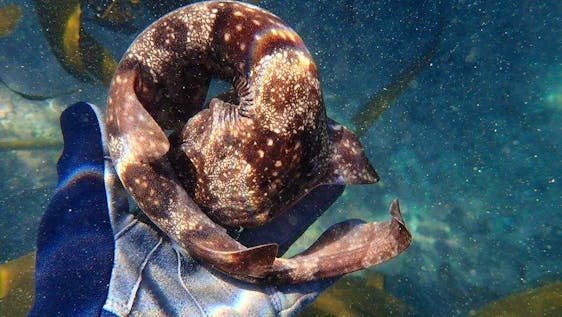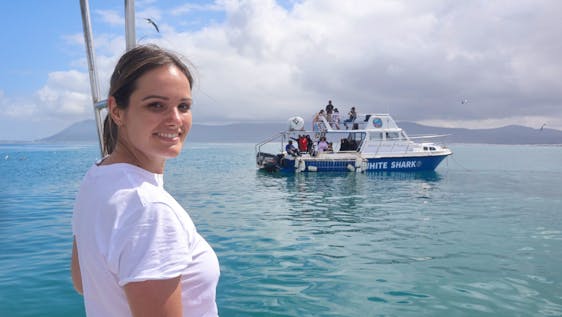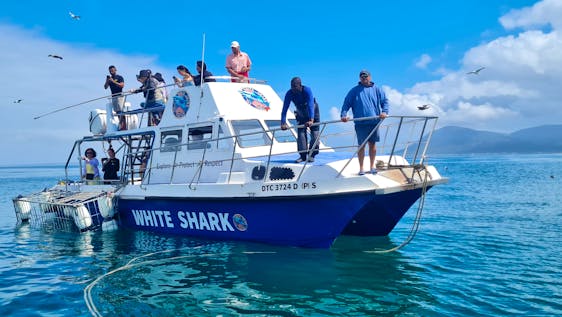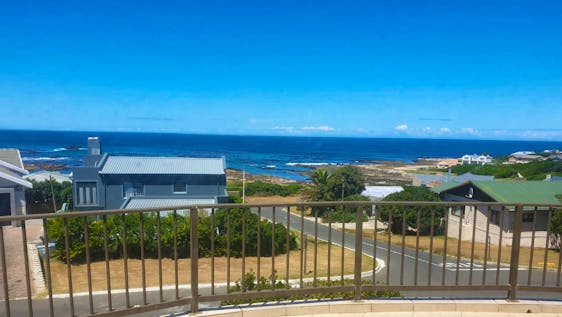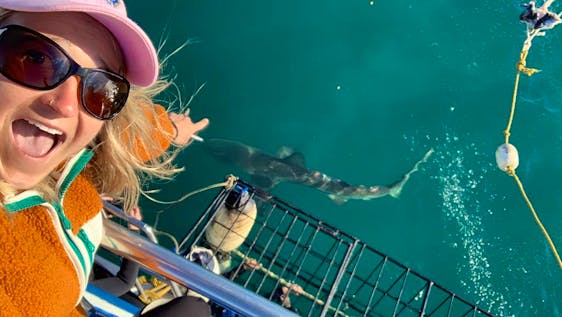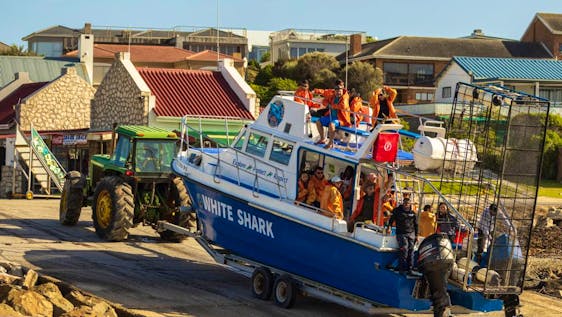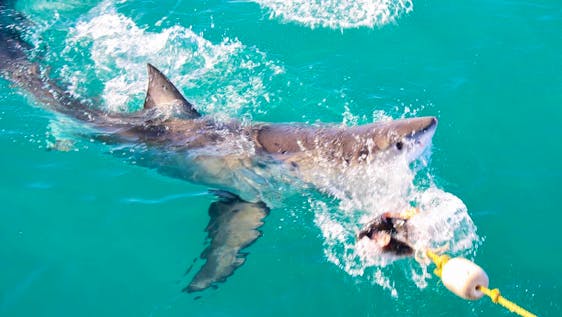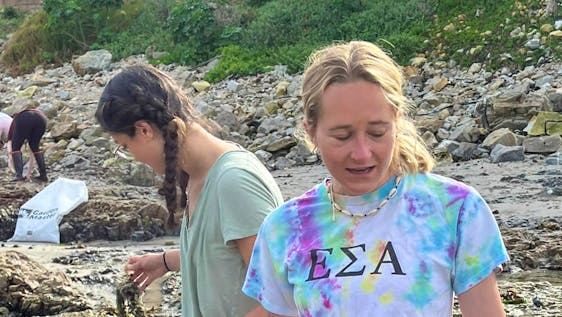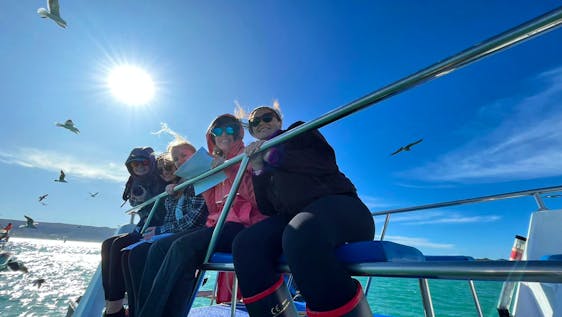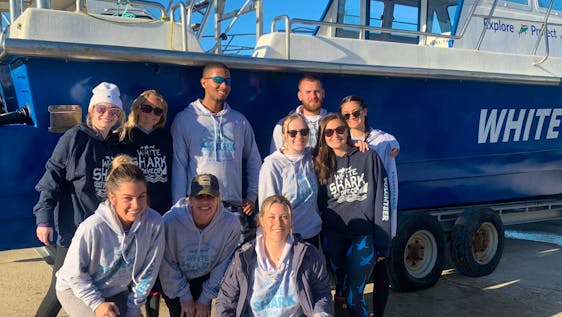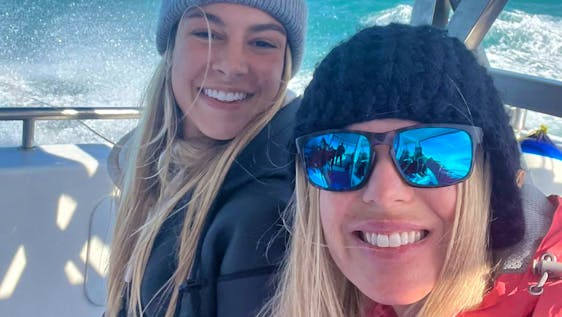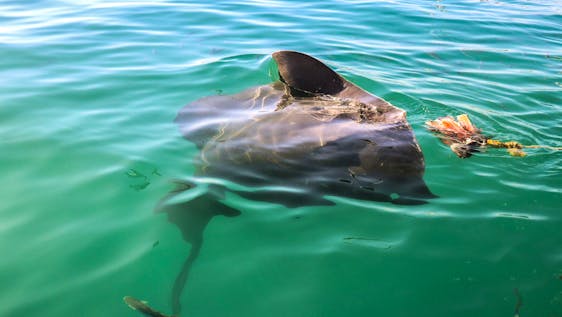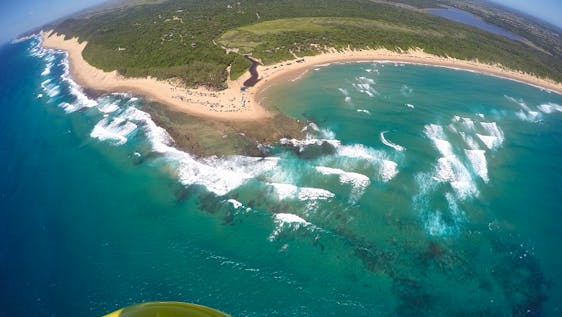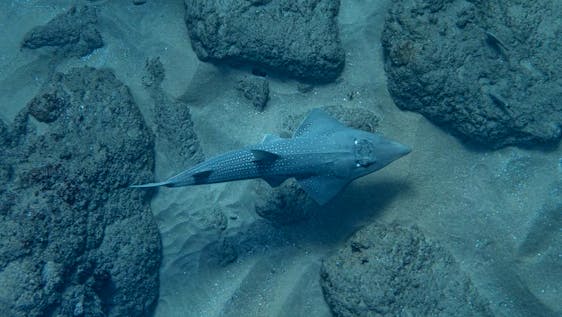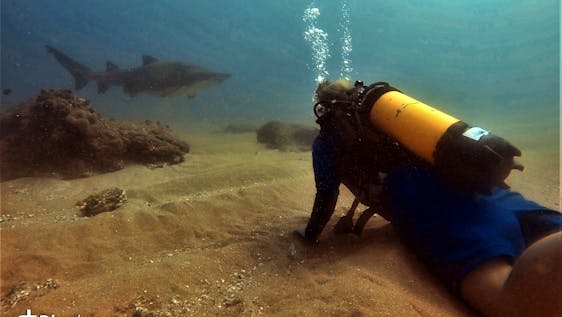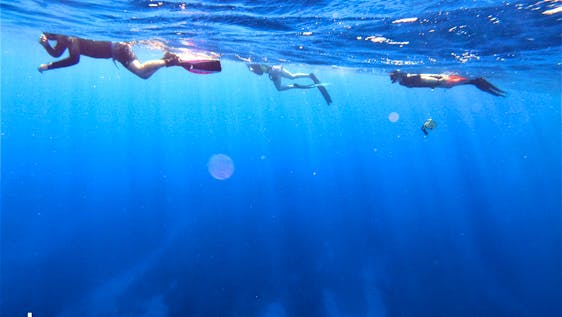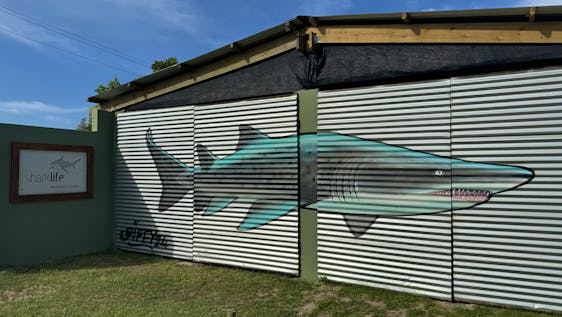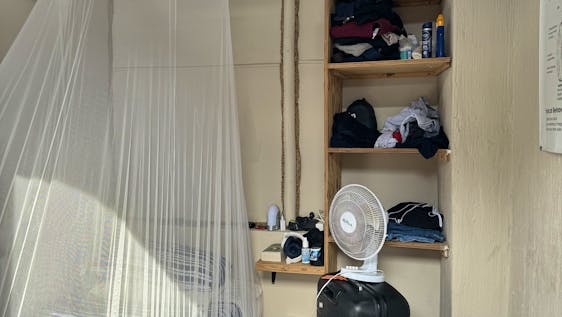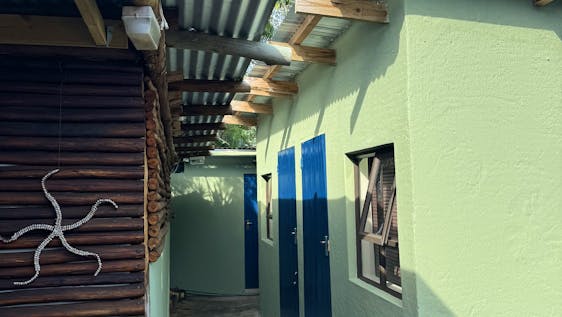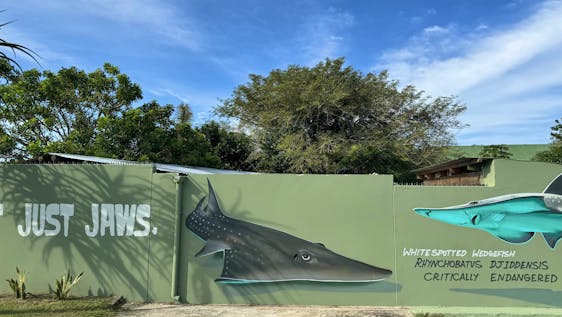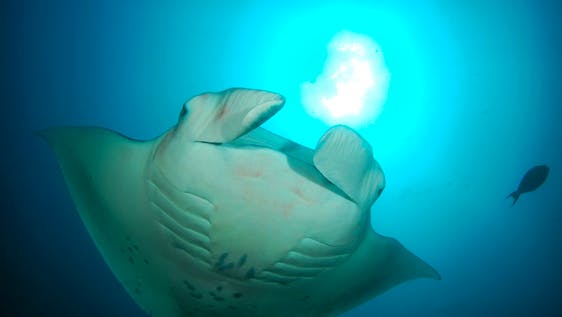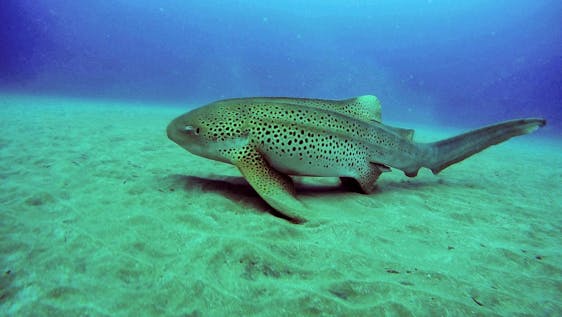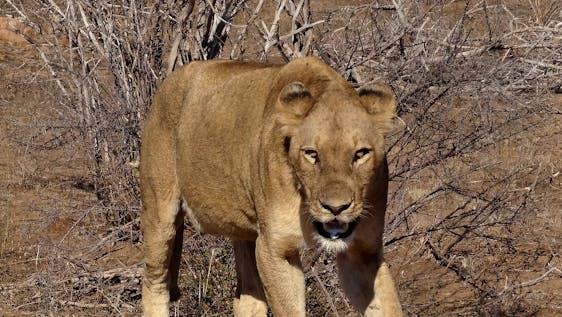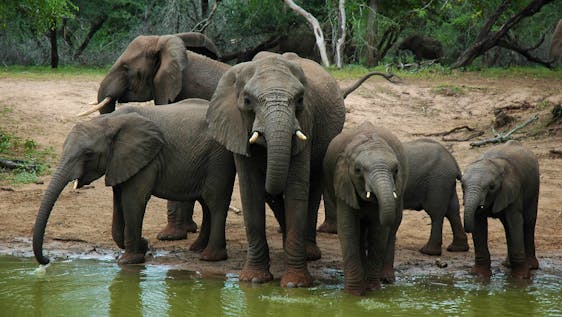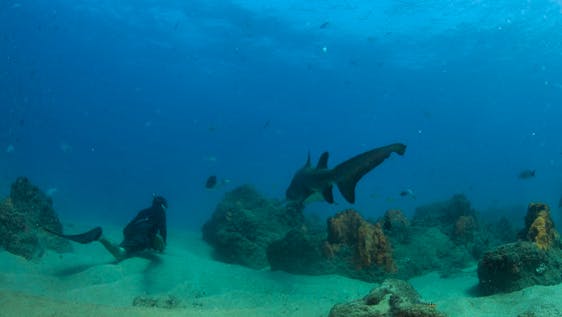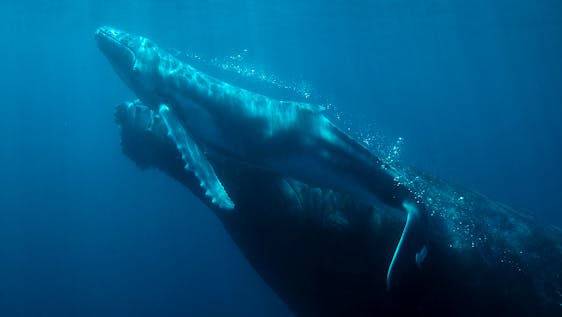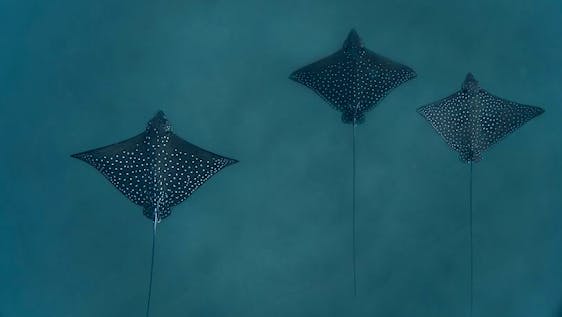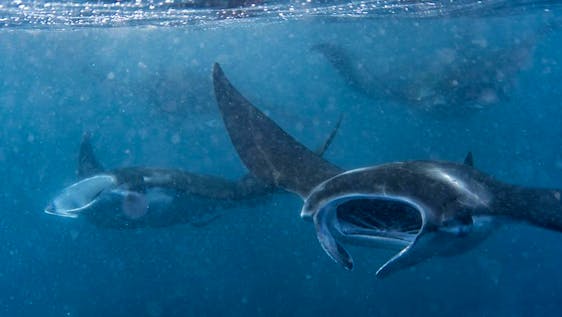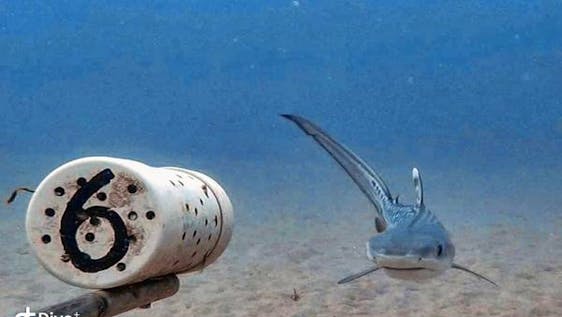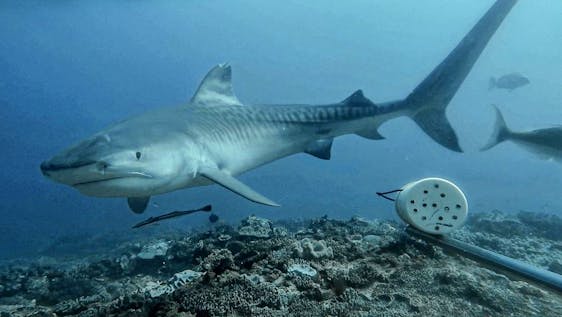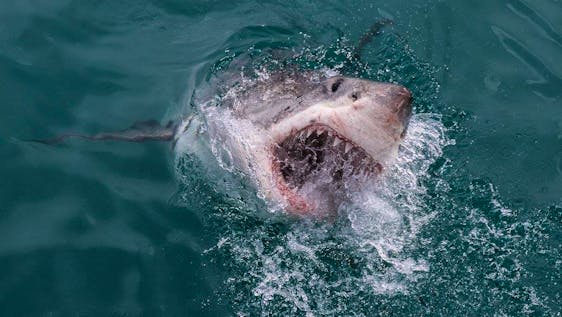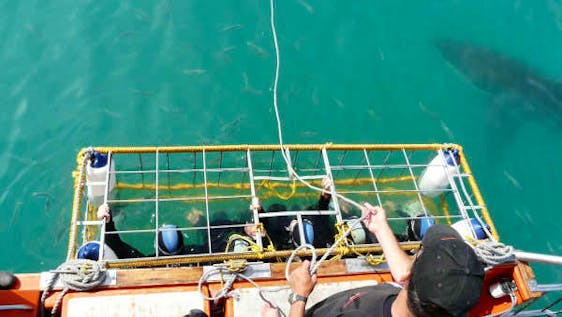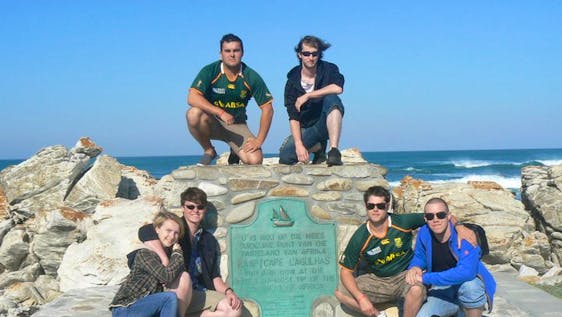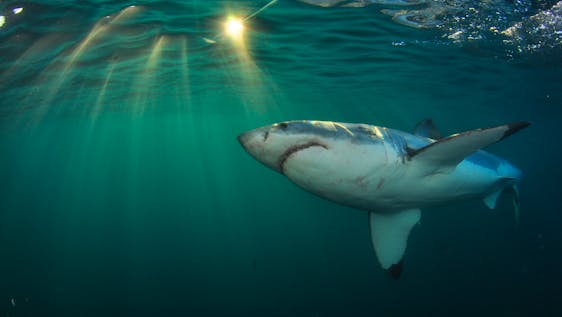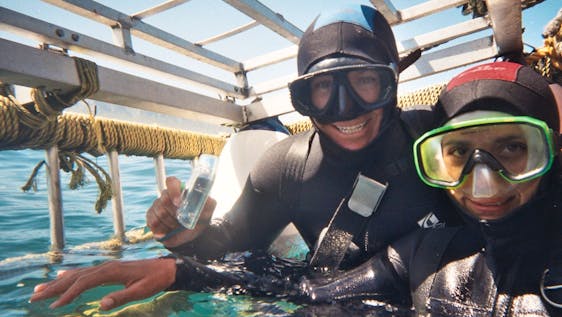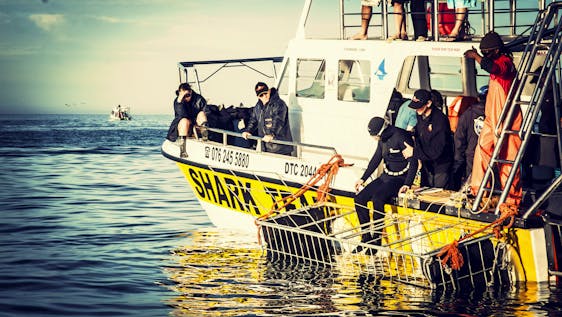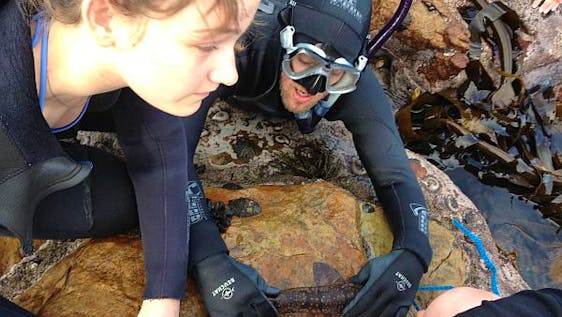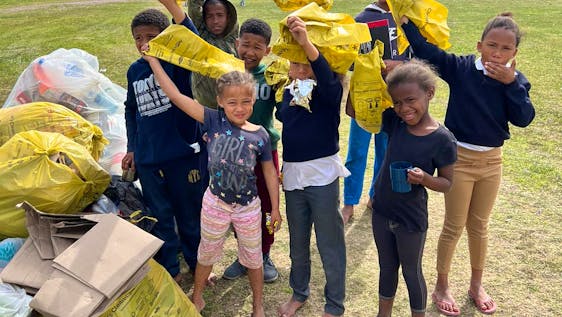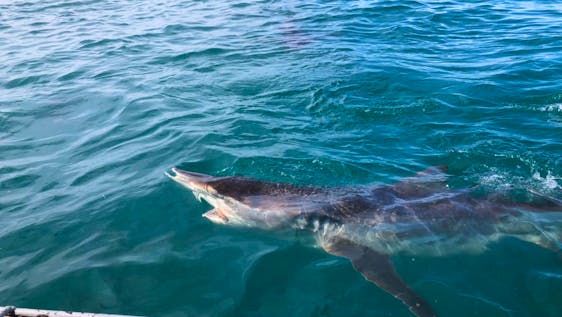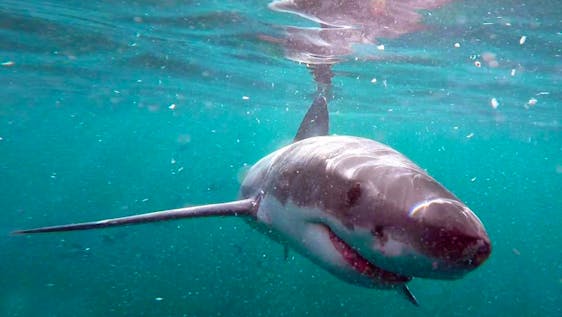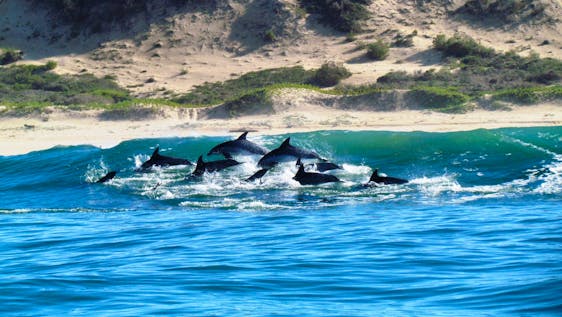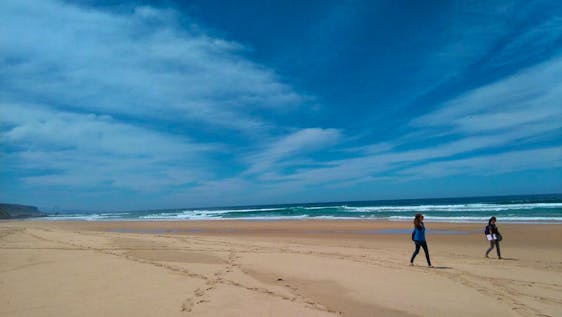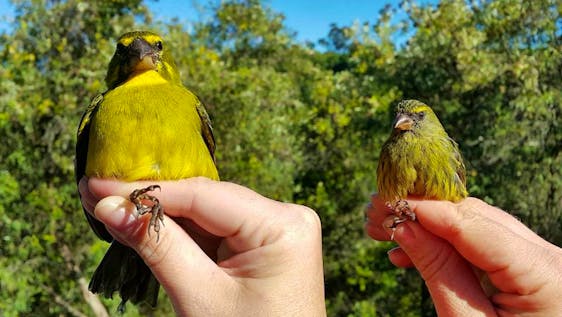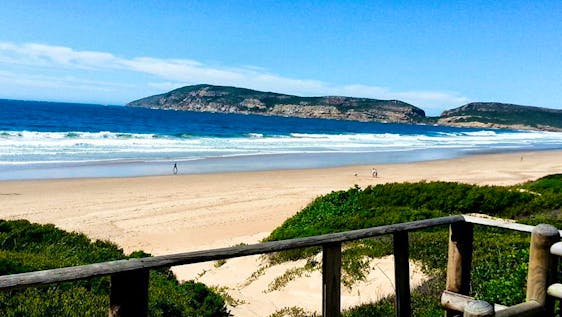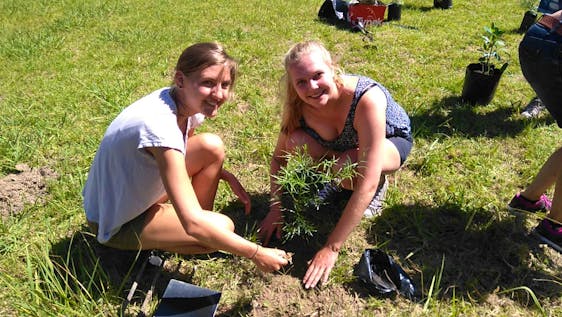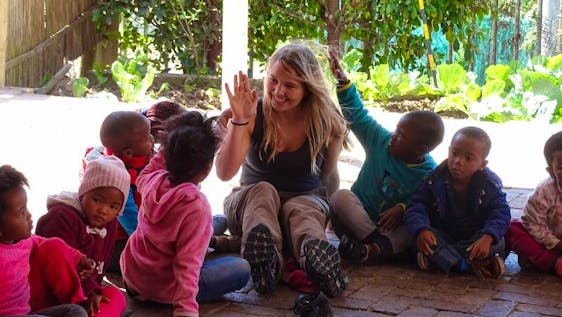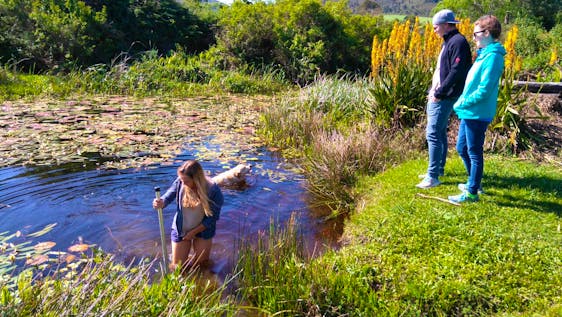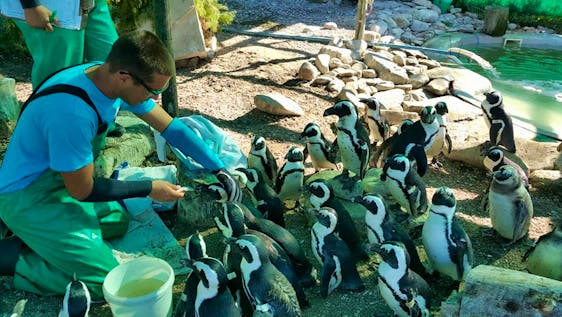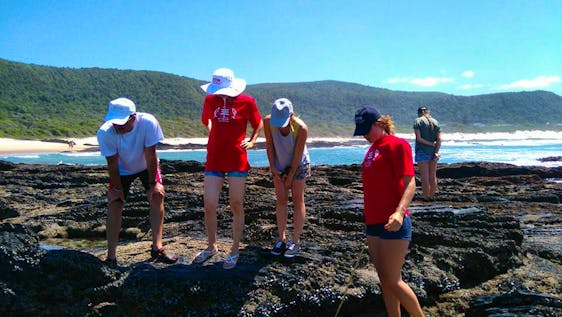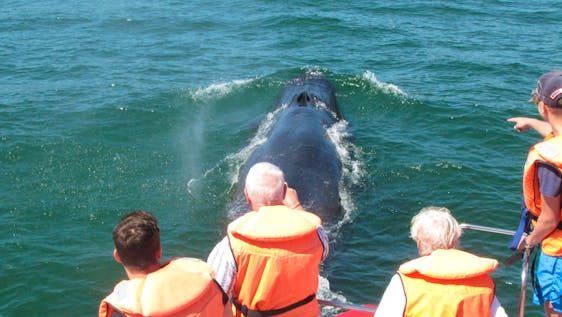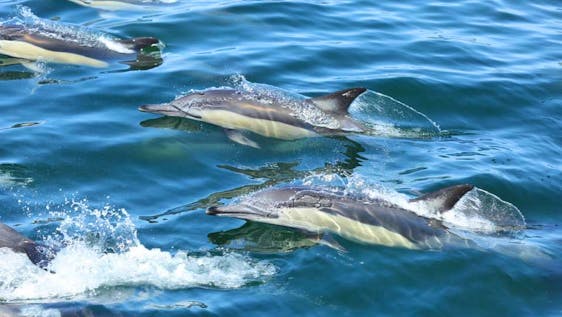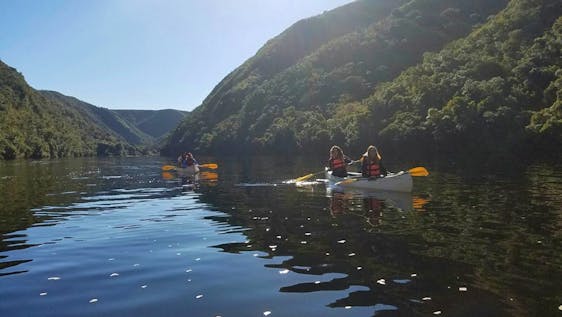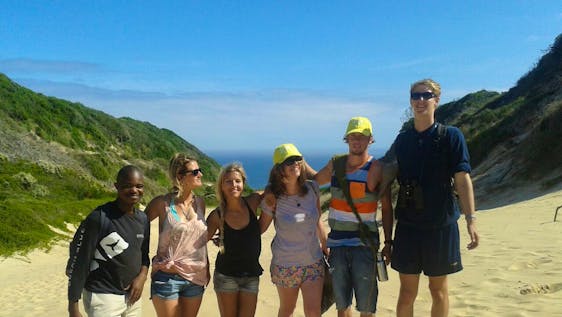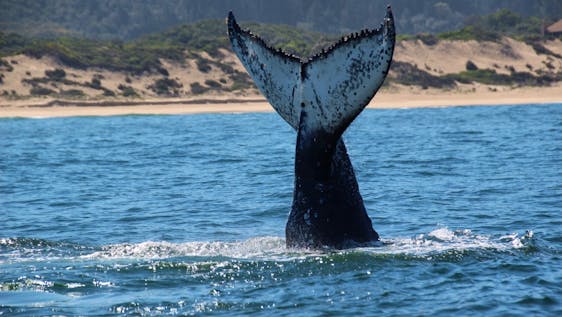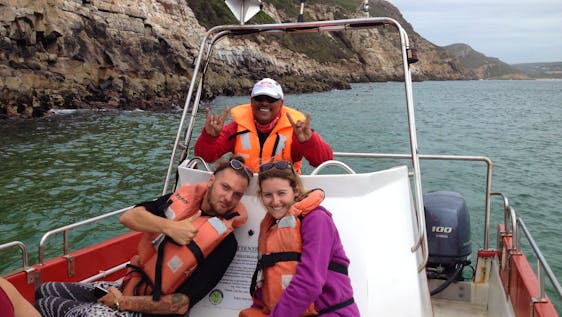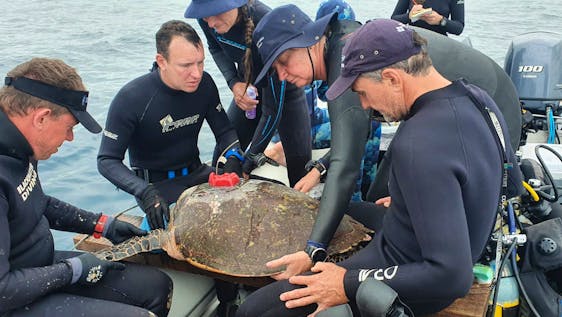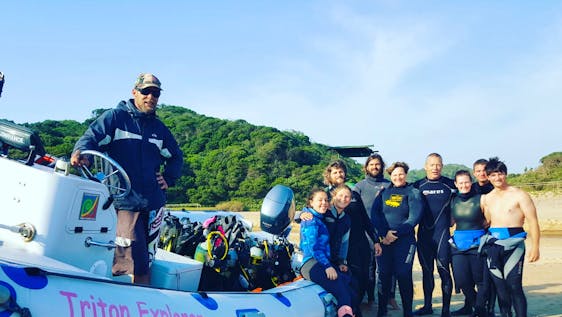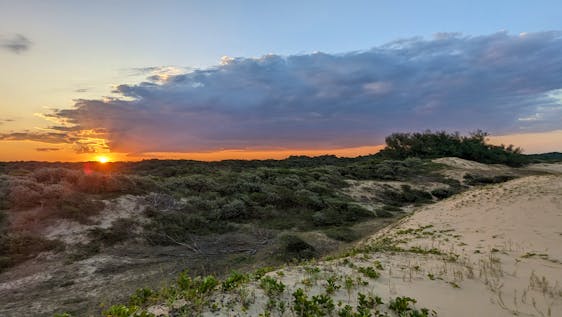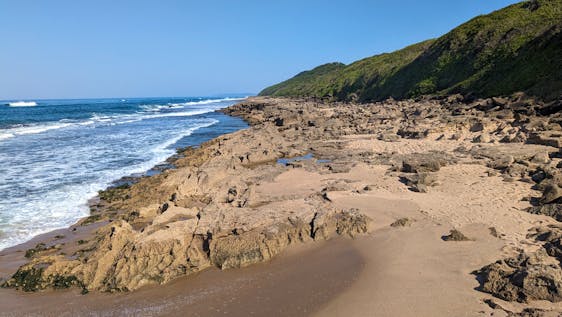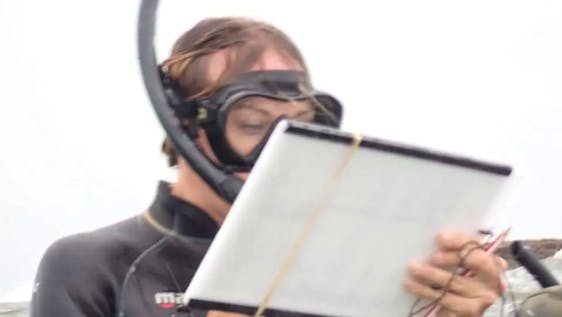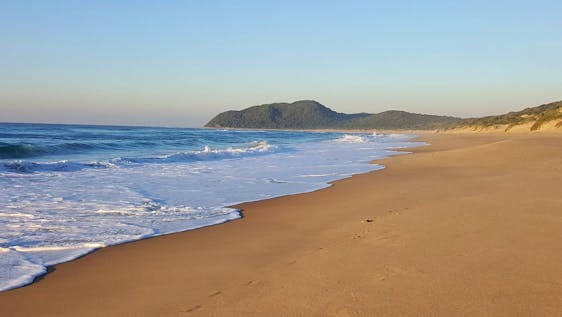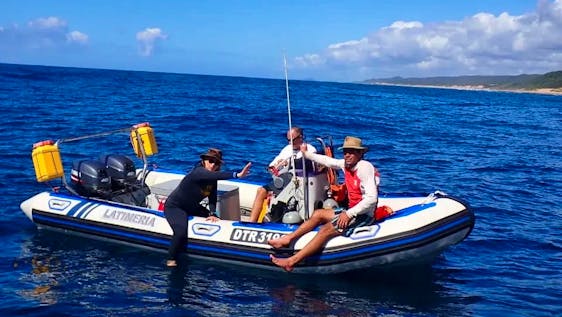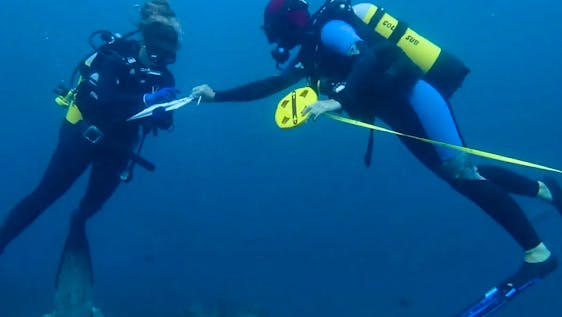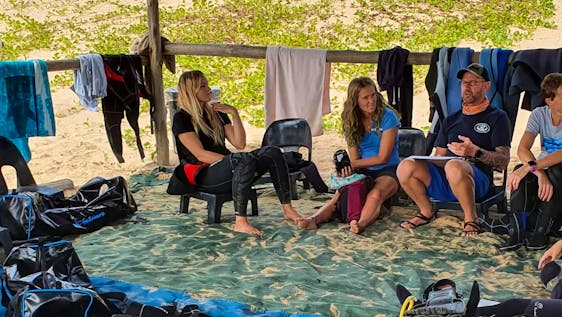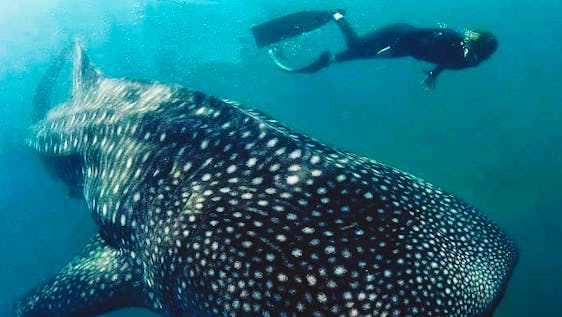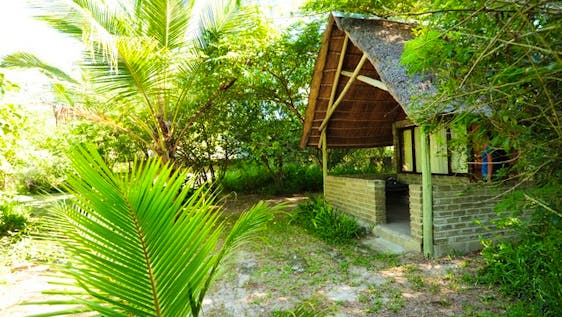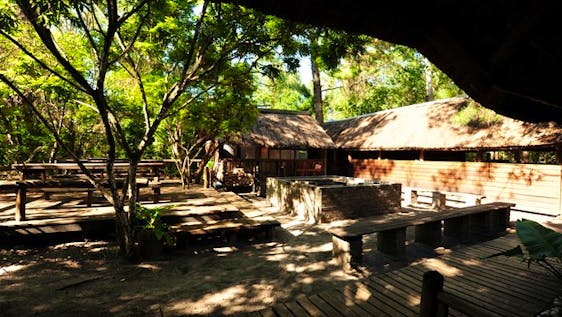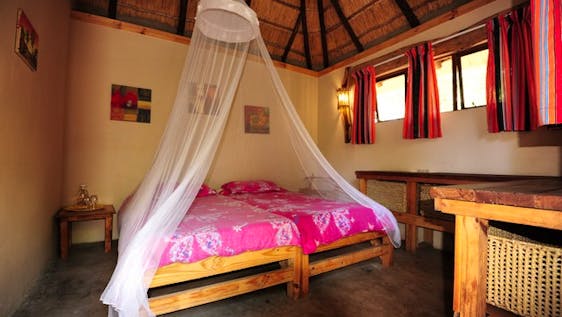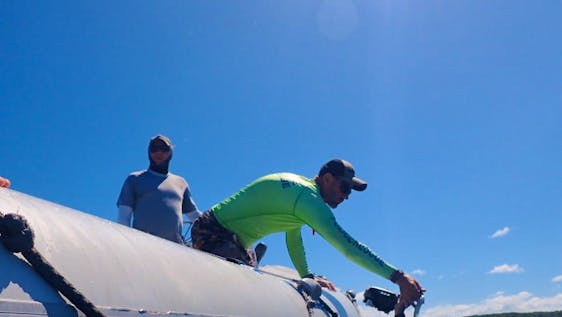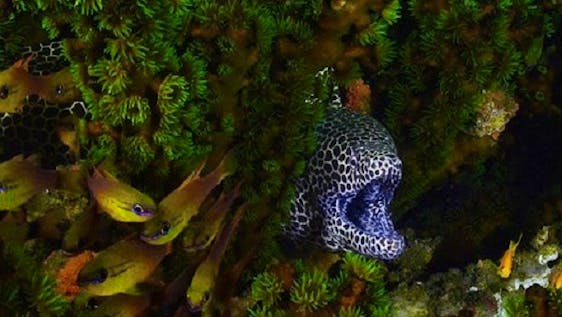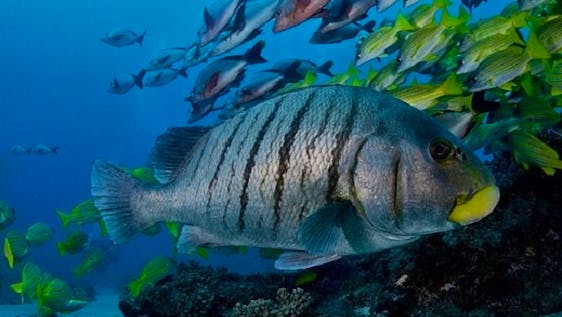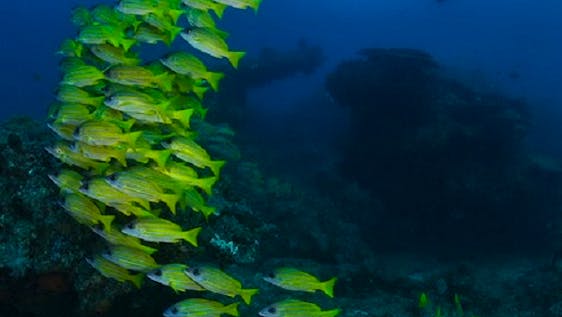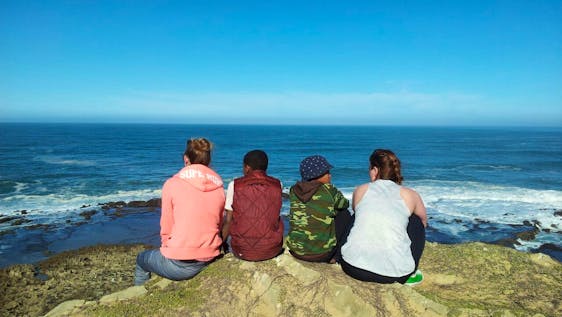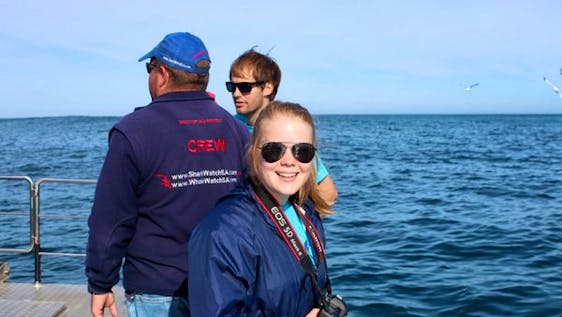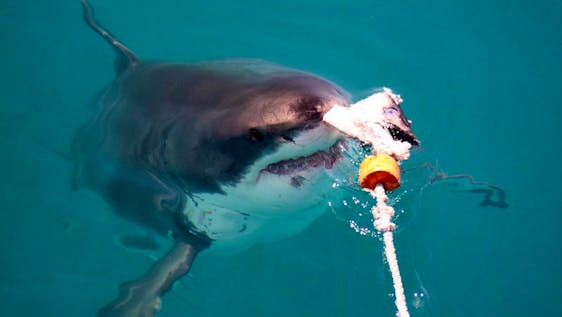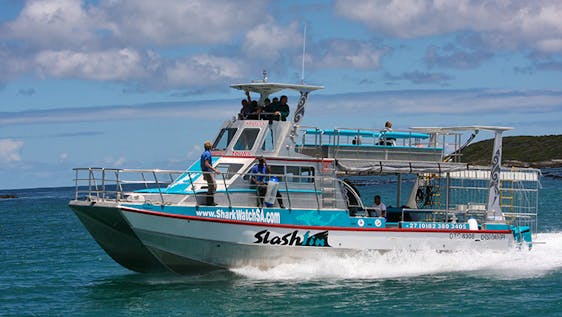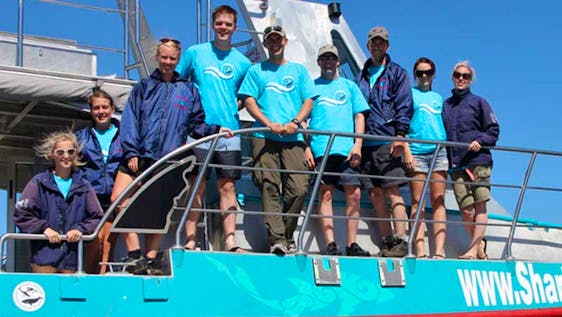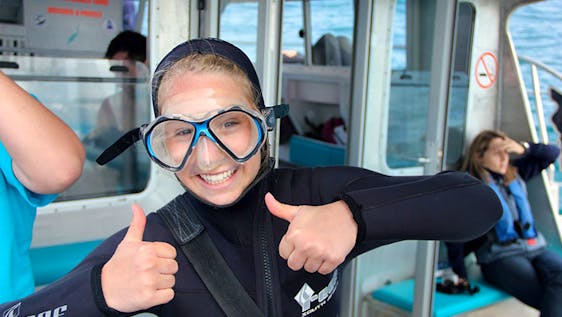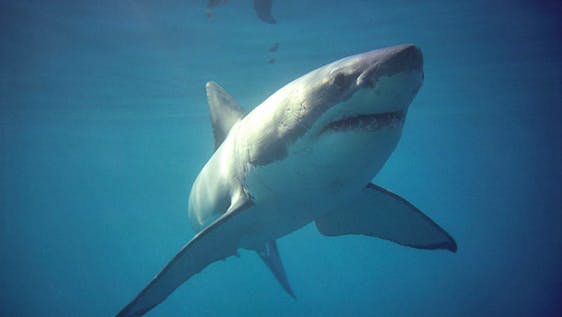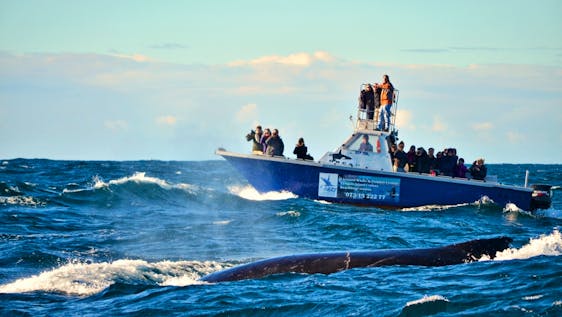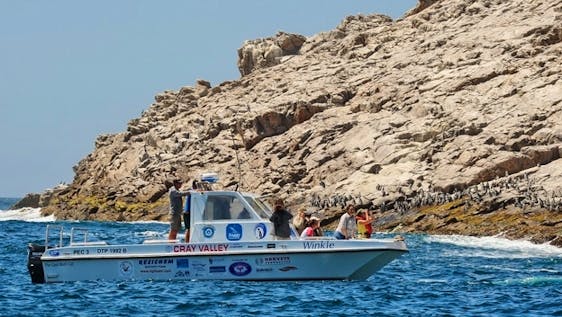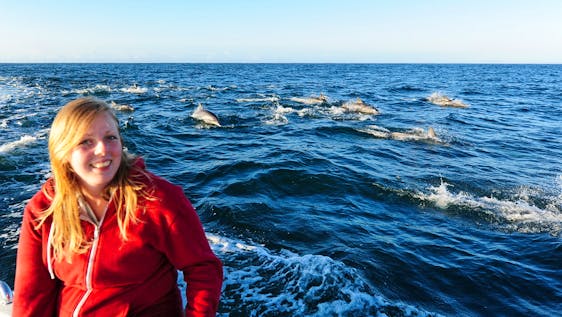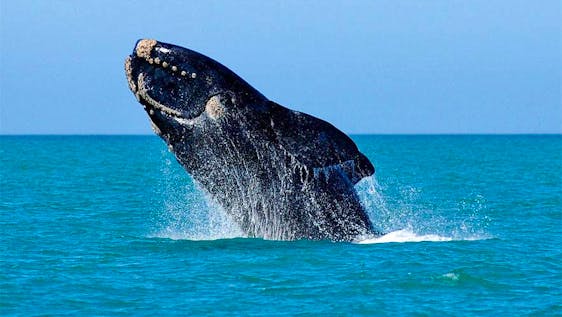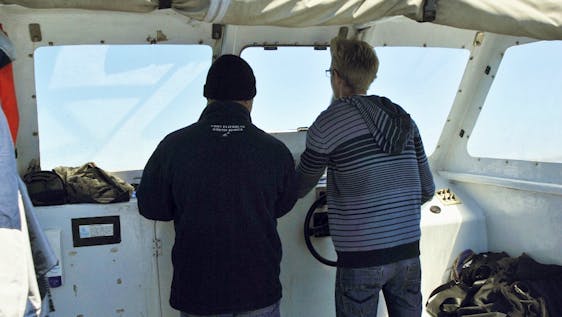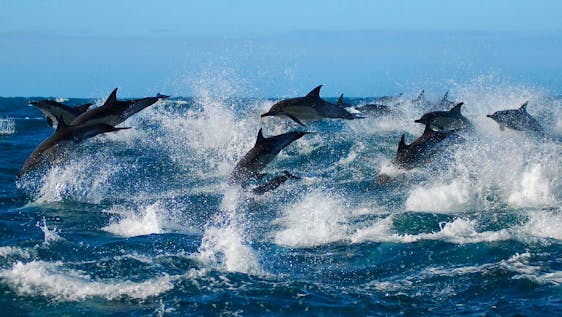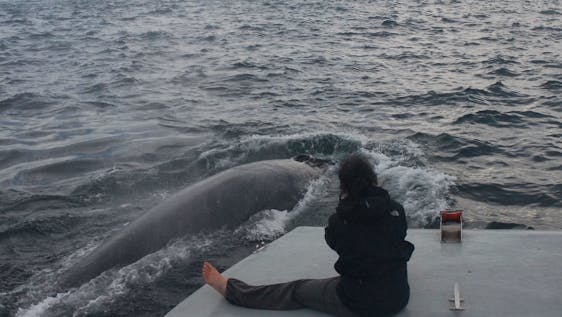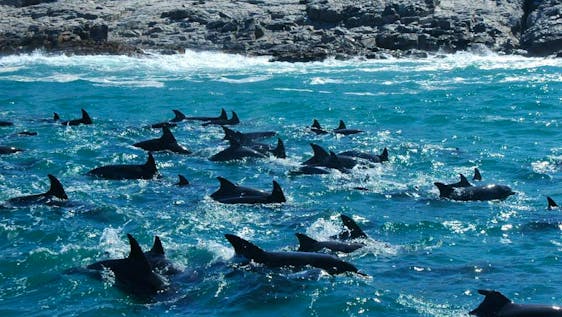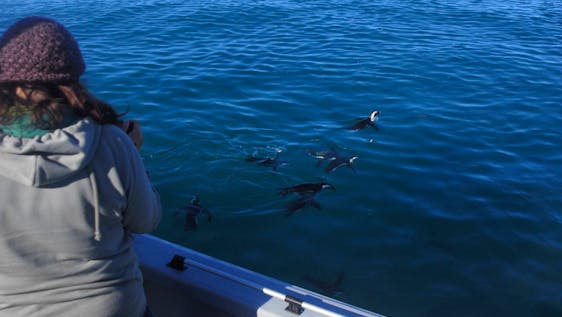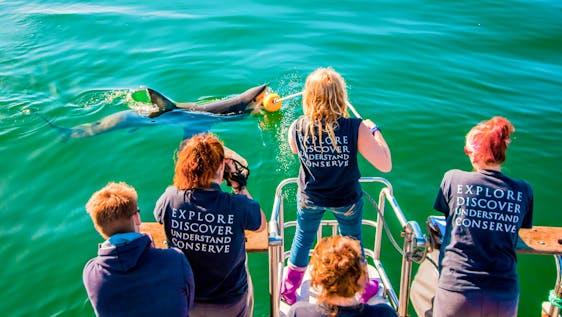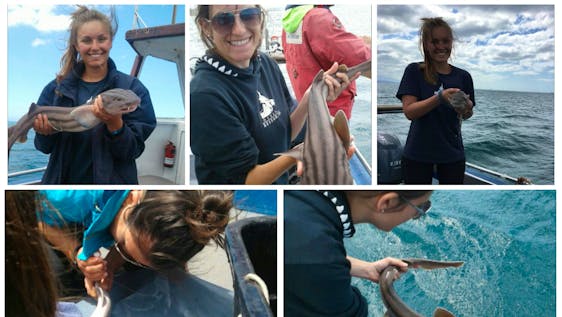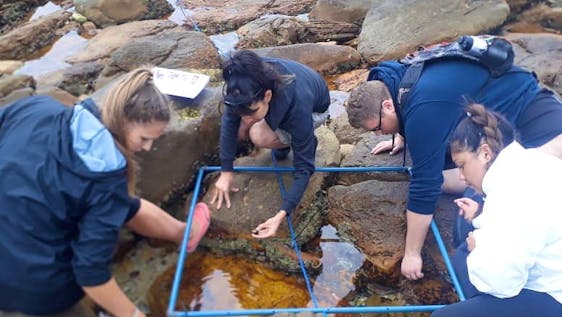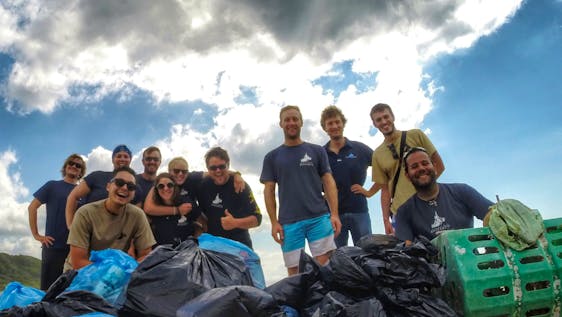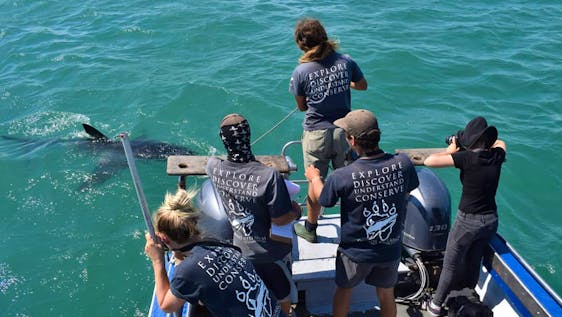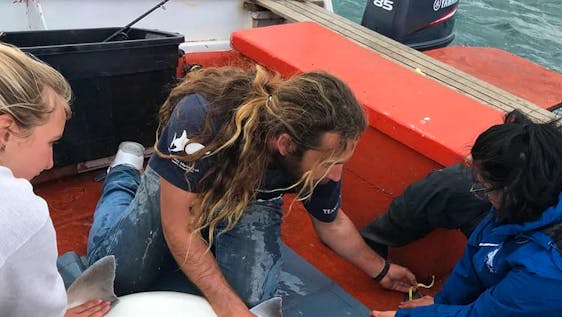White Shark Conservation Volunteer
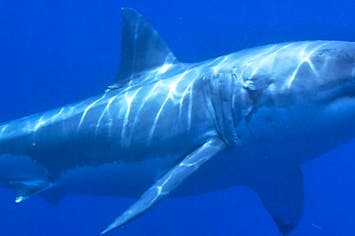
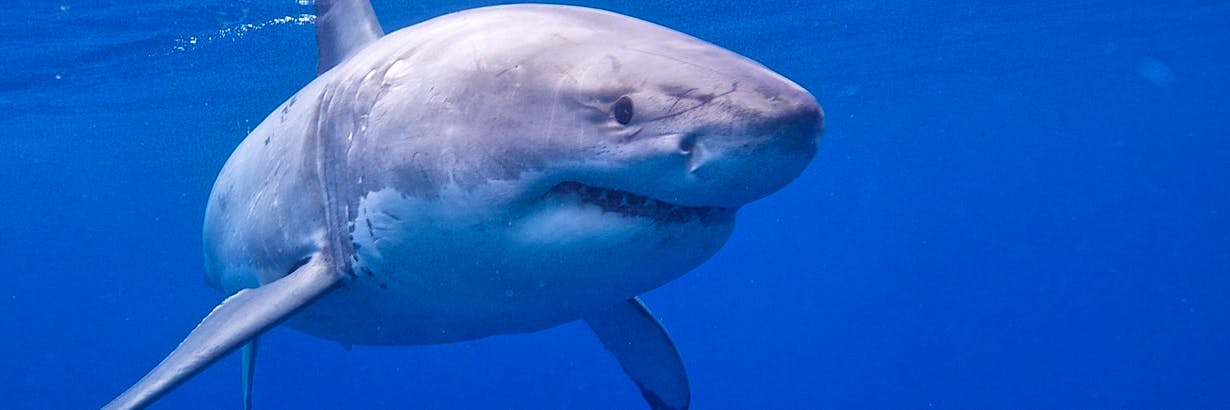
Great White Sharks Conservation Projects
Inhabiting the warmer coastal surface waters of all major oceans, the great white shark is feared as one of the planet’s deadliest predators. The 1975 blockbuster “Jaws” instilled a common fear of sharks lurking along the coastline waiting to attack the first human they can sink their teeth into. Perhaps the great white shark can’t count on much sympathy due to its brutal demeanor but they play an imperative role in keeping the marine ecosystem in check! Are you intrigued by this controversial creature? Get ready for some adrenaline-inducing adventure and help save one of the world’s most vulnerable species!
🦈 Are Great White Sharks Dangerous?
Being attacked by sharks while swimming off the coast of Australia or South Africa seems like a likely event to most of us. Luckily, there’s actually a very small chance of that ever happening. Not only because nobody should be swimming in undesignated or unsupervised waters, but more importantly, humans aren’t really on the shark’s menu anyway! When they do attack humans, it’s usually an accident, mistaking the human for a similarly sized fish or marine mammal which is much more appetizing to them.
🦈 Where does the name 'white' shark come from?
Great White Sharks get their name from their white underbelly which is lighter than their gray-blue black. This special coloring allows them to blend in seamlessly into the ocean décor and becoming unnoticeable to their prey.
This predator thanks its excellent hunting skills to its pristine sense of smell which detects prey at great distances along with the Lorenzini ampoules which detect fields of moving objects. These features along with 300 teeth arranged in several and a mouth opening measuring around 1 meter in width, making them one the most efficient predators on our planet.
🦈 Great White Shark Conservation Status 2025
Inhabiting the coastal surface of temperate waters around the world, great white sharks can be found on every continent except Antarctica. Although it’s impossible to know exactly how many of these predators populate our planet, the IUCN Red List of Endangered Species has listed them as a vulnerable species. You’re probably wondering why we should be contributing to saving a creature which is a threat to friendlier creatures like dolphins, seals, sea lions, etc… Consider the great white shark as a caretaker of the ocean. Top of the food chain, they eat carcasses along with the sick and weaker marine life. Sharks basically maintain a clean and healthy underwater world, preventing illness and disease from spreading.
Luckily, there are several conservation projects who acknowledge their importance and work hard to counteract the population decrease of the great white shark. Some organizations promote implementing protective measures to protect these controversial creatures and are taking initiative to educate the public about these effective predators and creating a less hostile attitude towards them.
Other organizations support research and monitoring of the great white shark by observing and tracking their migration behavior. They are tracked by satellite which delivers a lot of information that is useful to plan areas that are protected from bycatch (from fishing) and tourism regulation.
🦈 What is the Population of Great White Sharks?
A study conducted in February 2010 by Barbara Block of Stanford University estimated the world population of Great White Shark at less than 3,500 individuals, making the species more vulnerable to extinction than the tiger, whose population is in the same range.
🦈 Why are Great White Sharks Endangered?
You may have heard of shark fin soup which is considered a delicacy in some countries, resulting in sharks being fished and killed merely for their fins. Shark teeth and jaws are also in high demand as a fishing trophy. The high demand for these features has caused sharks to be under attack by fishermen to fulfill market demand. Due to illegal, unregulated and unrestricted fishing, the great white shark population is decreasing steadily. Even when sharks are no longer a target for their fins and teeth, they are often collateral of regular fishing activities where they get stuck in the nets and are simply discarded by the fishermen.
Why are we more worried about sharks than about other fish, you might ask. An important fact to take into account is that sharks grow relatively slowly. It takes years for them to mature and reach reproductive age. Sources differ about the age of sexual maturity with sharks but it takes at least 10-15 years for them to reach this age. Bottom line is that the shark population simply can’t replenish itself at the same rate as it is being caught.
To sum up, these are the biggest threats great white sharks are facing today:
- Illegal fishing
- Bycatch
- Pollution
- Climate change
- Slow reproduction rate
🌍 Best Places to Work with Great White Sharks
California & North America
The Great White Shark is commonly found on the coasts of North America from Newfoundland to southern Mexico in the Atlantic Ocean and from Alaska to southern Mexico in the Pacific Ocean. You can work with Great White Sharks in Baja California Sur in the USA. This is another great white shark hub where volunteers will be sure to encounter them and contribute to an array of meaningful activities to help decrease the speed of their population decline.
South Africa
Outside of America, there’s a substantial population dwelling in the waters of South Africa and Australia. They can also be found in the Mediterranean Sea and Japan. Volunteers who are drawn to the sea and exceptional dramatic landscapes will be packing their bags in no time knowing their shark saving adventure will most likely lead them to South Africa! Kleinbaai is a bay at the south point of this touristic hotspot where fearless volunteers can take part in some adrenaline-pumping activities.
🤔 How Can I Help Protect Great White Sharks?
We’re happy you asked! First of all, we can all help! As a consumer, we can help by refusing to buy or consume any products made of shark’s fins or teeth. When the demand for these objects declines, there will be no longer be an incentive to catch sharks for this purpose!
Tourists can make a difference by selecting sustainable tourism options for their holidays. There are various organizations offering shark cage diving for example. This is an incredible experience first of all and besides being introduced to a whole new (underwater) world, your contributions will support the great white shark conservation efforts.
There are a number of conservation projects out there which rely on contributions to keep activities going. Anyone willing to contribute funds to a project of choice is making a difference! If you don’t just want to donate money but you want to get hands-on yourself, volunteering is the perfect opportunity for you! Volunteers who want the full-on experience can take it a step further and help with shark monitoring and tracking. They will participate in gathering data which will be imperative for future decisions and implementation of new protective measures.
📋 What Will I Do as a Volunteer on a Great White Shark Conservation Project?
You understand the importance of the great white shark and want to join a program, and now you’re wondering: What will I be doing as a volunteer?
First all you’ll most likely be heading to South Africa which is an adventure in itself. We don’t need to go into detail about the exquisite views and landscapes which are simply a well-known fact. As a volunteer, there are many different tasks waiting for you both on the land and out on the sea:
- Dive amongst one of the scariest predators on the planet (don’t worry, you’ll be in a steel cage amongst other divers)
- Collect data about the sex, size, markings and behavior of the sharks
- Learn basic seaman skills including boat maintenance, packing and cleaning of equipment, knots, cage diving deployment
- Assist the tourists on the boat where necessary
- Spread the word about the importance of white sharks to tourists and locals
There are other ongoing side projects which volunteers can contribute to. This can involve teaching locals the importance of recycling, environmental awareness and sustainable habits. Instilling these values amongst the locals will lead to better treatment of the environment they share with the great whites and other wildlife.
When you decide to become a great white shark conservation volunteer, you have the chance to contribute on many fronts. First of all, providing funds for the project will allow these projects to continue the meaningful role they are fulfilling. Rolling up your sleeves and contributing to research efforts on the great whites are active steps to protecting this vulnerable species but you’re also bringing across an invaluable message-the importance of conserving the great white shark! You’ll be mingling with locals and helping them towards adopting a more environmentally friendly and sustainable lifestyle which is truly addressing the problem at the root!
🎁 Benefits of Volunteering with Great White Sharks
Seeing great white sharks in their natural habitat is a once-in-a-lifetime experience in itself. The prospect of this adrenaline-inducing event is enough to get any adventure seeker to pack their bags and volunteer to conserve the great white shark. But there are actually many benefits of volunteering.
Boost your career
Besides the thrill and excitement this experience is sure to bring, participating as a volunteer and actively contributing to a greater good demonstrates that you take responsibility and are motivated by a meaningful cause. Above all, volunteering shows awareness of our environment and a willingness to take action. These are all qualities that are highly appreciated in any future career.
Improve your language skills
Volunteering with great white sharks in South Africa will require knowledge of the English language. Depending on where you are from, this could be a chance to improve both your English and communication skills.
Make new friends
Besides a fun-filled agenda with extraordinary activities, what usually makes an experience unforgettable are the people! You will be surrounded by like-minded individuals who share your passion and excitement for sharks and marine life. Encounters on an adventure like this are bound to forge meaningful friendships!
Live like a local
Engaging with the community around you will give you an insight into the life amongst locals who share the same environment as the great white sharks. You can make a difference in their lives too by engaging in educational outreach programs that teach about sustainability and business knowledge.
We are excited about helping you with your quest to become a great white shark conservation volunteer and guarantee this will be an adventure you will never forget!
EVALUATED NE
DEFICIENT DD
CONCERN LC
THREATENED NT
ENDANGERED CR
IN THE WILD EW
 Shark Conservation
Shark Conservation
 Whale Conservation
Whale Conservation
 Dolphin Conservation
Dolphin Conservation
 Activities
Activities
 South Africa
South Africa
 Southern Africa
Southern Africa
 Africa
Africa
 Marine Life
Marine Life
 Animal
Animal
 Mako Shark
Mako Shark
 Ray Conservation
Ray Conservation
 Diving
Diving
 Diving certificate
Diving certificate
 Bottlenose Dolphin
Bottlenose Dolphin
 Southern Right Whale
Southern Right Whale
 Humpback Whale
Humpback Whale
 Penguin Conservation
Penguin Conservation
 Common Dolphin
Common Dolphin
 Waste Reduction
Waste Reduction
 Shark Tagging
Shark Tagging
 Ragged Tooth Shark
Ragged Tooth Shark
 Beach Cleaning
Beach Cleaning
 Hammerhead Shark
Hammerhead Shark
 Sting Ray
Sting Ray
 Thresher Shark
Thresher Shark
 Manta Ray
Manta Ray
 Vegan
Vegan
 Plastic Reduction
Plastic Reduction
 Hotspots
Hotspots
 Orca
Orca
 Plettenberg Bay
Plettenberg Bay
 Volunteer and Travel
Volunteer and Travel
 Voluntourism
Voluntourism
 Sea Turtle Conservation
Sea Turtle Conservation
 Environment
Environment
 Marine Conservation
Marine Conservation
 Loggerhead Turtle
Loggerhead Turtle
 Leatherback Turtle
Leatherback Turtle
 Coral Reef
Coral Reef
 Whale Shark
Whale Shark
 Pelagic Shark
Pelagic Shark
 Port Elizabeth
Port Elizabeth
